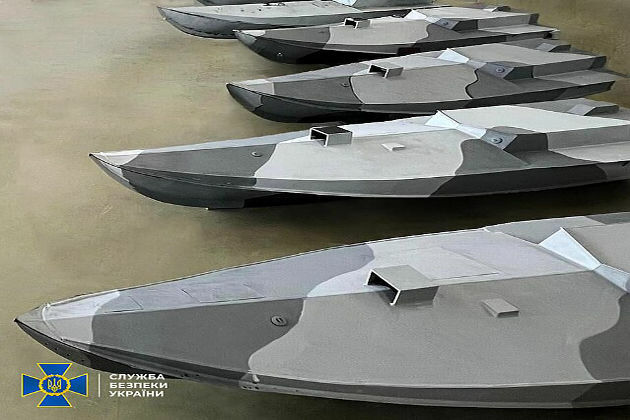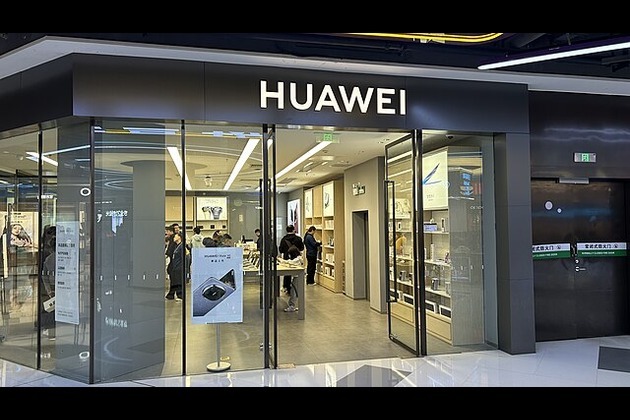AUKUS at a crossroads: Testing the trust in trilateralism
Independent Australia
17 Jun 2025, 07:30 GMT+10

As the U.S. reconsiders its AUKUS commitments, the alliance faces a defining test of trust, power and political will, writesVince Hooper.
IN 2021, theAUKUSsecurity pact was hailed as a bold reconfiguration of 21st-century deterrence strategy a trilateral alignment between Australia, the United Kingdom and the United States aimed at countering China's assertive rise and reasserting Western naval dominance in the Indo-Pacific.
Fast forward to mid-2025 and this celebrated alliance finds itself at an uncomfortable juncture. TheBiden-to-Trumptransition has triggered a Pentagon-ledreview of AUKUS, casting a long shadow over one of the most ambitious military-industrial collaborations in recent memory.
While effectively termed a routine review, the reassessment has resurrected old anxieties: Can the U.S. be trusted to honour long-term strategic commitments? Is AUKUS another casualty of transactional geopolitics under the revived America First doctrine? And what does this say about the future of U.S.-led alliances in an increasingly multipolar world?
Labor talks tough as U.S. pushes for defence hikeAlbanese rejects U.S. calls to raise defence spending, but history suggests Labor folds when the strategic pressure starts to rise.
America first, allies second?
The Trump Administrations review of AUKUS is not unexpected. America First was never a slogan its a worldview. One that sees multilateralism not as a given, but as negotiable. Under this prism, alliances are not ends in themselves but levers of national advantage. AUKUS, with its projected $368 billion submarine program, nowfaces scrutinythrough this narrower lens: Is the U.S. giving more than it gets?
Such reviews may be procedurally justifiable, but they are diplomatically disruptive. Congressional Democrats argue the review sends mixed signals, suggesting American alliances are only as enduring as the next presidential tweet. For middle powers like Australia and even nuclear-armed Britain, this unpredictability is a strategic risk in itself.
Australias strategic gamble and domestic political tensions
For Canberra, AUKUS isnt just a policy it's a bet. A bet on the permanence of American power projection in the Indo-Pacific and a belief that advanced submarines, AI collaboration and cyber deterrence will bolster sovereignty in an increasingly hostile region.
Yet domestically, the pact faces increasing scrutiny. Opposition from the Australian Greens and factions within the Labor Party highlight concerns over strategic dependency, ballooning costs and the implications of hosting nuclear-powered vessels in the region. Should U.S. reliability waver, political pressures could intensify, potentially complicating Australia's long-term commitments.
Britains calculus: Atlanticism vs Indo-Pacific tilt
For the UK, AUKUS was a rare chance to prove thatGlobal Britainwas more than a slogan. It allowed London to stretch its strategic relevance eastward while deepening defence industrial ties with Washington and Canberra.
Now, the review raises awkward questions in Westminster. Is Britain merely a symbolic participant in a deal shaped by Washington and paid for by Canberra? And if AUKUS begins to fray, where does that leave the UKs Indo-Pacific tilt?
Budgetary pressures and growing public scepticism over overseas military engagements add complexity. Defence experts warn that Britain must reassess not just its contribution but its broader strategic dependencies if it is to maintain credible influence in the Indo-Pacific.
AUKUS gets a Trump cardJust when Australia needed a way out of its $368 billion submarine gamble, along comes the most unlikely escape hatch of all.
Francis Tusa, a British defence analyst,puts it starkly:
AUKUS was always about more than submarines it was a trust pact. Undermining it risks corroding the very credibility the West seeks to project.
Beyond submarines: The tech race and industrial realities
AUKUSs ambitions extendwell beyondnuclear submarines. It encompasses hypersonic missiles, quantum computing, cyber warfare and AI-driven command and control systems. These cutting-edge capabilities require deep collaboration in technology transfer and intellectual property sharing among the three nations.
The Pentagon review raises doubts not only about submarine timelines but also about the U.S.defence industrial bases capacity to support its own military needs and those of allies simultaneously. American shipbuilding is bottlenecked by decades of underinvestment, producing just two nuclear subs per year, while the AUKUS plan demands far more. Could the UKs Barrow shipyard or Australian industrial initiatives fill these gaps, or is the programs scale simply unrealistic?
Regional reactions: Allies and adversaries watching closely
In Southeast Asia, AUKUS was already controversial, perceived by some as a provocative escalation in a fragile regional balance. Indonesia, Malaysia and others watch the U.S. review warily, concerned about an arms race or diminished U.S. engagement.
Meanwhile, partners such as Japan, South Korea and India may question the durability of U.S. commitments, not just in AUKUS but across theQuadand other regional frameworks. Australia, the UK and the U.S. must therefore weigh the risks of sending mixed signals to allies at a critical geopolitical inflection point.
Australian values key to rethinking defence strategyThe re-elected Labor Government has a chance to adopt a defence strategy that values what's most important to Australians their very lives.
Chinas strategic messaging and diplomacy
From Beijings perspective, the U.S. review is a propaganda gift. It reinforces the narrative that America is unreliable and inward-looking. China may seize the opportunity to accelerate diplomatic overtures and security partnerships in the Indo-Pacific, presenting itself as a steadier alternative to a wavering U.S.-led alliance.
Broader lessons for alliance management
AUKUSs moment of uncertainty illustrates a broader trend in alliance politics.NATO, the Quad and theFive Eyesintelligence community all grapple with the challenges of maintaining unity amid divergent national priorities and rising populism.
Are we entering an era of insurance multilateralism where partners hedge against U.S. unpredictability by forming parallel or redundant security frameworks? The answer to this question will shape the future of Western collective security architecture.
Conclusion: Trilateral, not transactional
The core logic of AUKUS shared threat perceptions, interoperable technologies and democratic alignment remains intact. But logic alone doesnt build submarines. Political will does. And that will is now on trial.
If the U.S. proceeds with AUKUS but demands disproportionate cost-sharing or strategic concessions, it may preserve the alliance in name while hollowing it out in substance. If it retreats altogether, the message to allies worldwide will be chilling: that American partnership is a short-term contract, not a long-term covenant.
Trust, not tonnage, is the true ballast of any alliance. If AUKUS founders on the rocks of short-termism, the ripple effect may stretch far beyond the Pacific.
AUKUS was supposed to be the future of trilateralism. Whether it now becomes a footnote in transactionalism depends not on strategic doctrine but on political determination. It is time, once again, for Washington to decide what kind of ally it wants to be and for Canberra and London to prepare contingencies in case that answer is not the one they hoped for.
Vince Hooperis a proud Australian/British citizen who is professor of finance and discipline head at SP Jain School of Global Management with campuses in London, Dubai, Mumbai, Singapore and Sydney.
Related Articles
- Australian independence beckons as U.S. decays
- What's in store for Australia if we persist with AUKUS
- Australia's autonomy from the U.S. has never been more vital
- Flawed AUKUS pact sinking quickly
- AUKUS proves Australia and U.S. to be an Odd Couple
 Share
Share
 Tweet
Tweet
 Share
Share
 Flip
Flip
 Email
Email
Watch latest videos
Subscribe and Follow
Get a daily dose of Malaysia Sun news through our daily email, its complimentary and keeps you fully up to date with world and business news as well.
News RELEASES
Publish news of your business, community or sports group, personnel appointments, major event and more by submitting a news release to Malaysia Sun.
More InformationSoutheast Asia
SectionUkraine sea drone success inspires Taiwan defense plans against China
WUSHI, Taiwan: Inspired by how Ukraine has used sea drones effectively against Russia in the Black Sea, Taiwan is learning how to use...
Foxconn iPhone exports from India now mostly headed to the US
NEW DELHI, India: Amid mounting U.S.-China trade tensions, Apple has sharply increased iPhone shipments from India to the United States,...
Rajasthan’s city records scorching 47.3°C, as India faces heatwave
NEW DELHI, India: A scorching heat wave is engulfing northern India, with temperatures rising well above normal and causing significant...
Hundreds of lives lost as London-bound Air India plane crashes after take-off
NEW DELHI, India - The world is in shock following Thursday's devastating plane crash in India which has killed at least 290 people,...
UN Demands End to Myanmar Violence as Junta’s Election Plans Risk Further Instability
Nearly three months after a devastating earthquake struck Myanmar, the country remains trapped in a deepening crisis, compounded by...
"More money in trade with India than there is with Pakistani proxy, propped up by China": Canadian journalist Daniel Bordman's on PM Modi's visit, Sikh extremism
Calgary [Canada], June 17 (ANI): Canadian journalist Daniel Bordman shed light on the visit of Prime Minister Narendra Modi's to attend...
Business
SectionSpotify, Discord disrupted by brief Google service glitch
MOUNTAIN VIEW, California: On June 12, Google announced that it had fixed a temporary global service disruption that impacted several...
U.S. stocks forge ahead despite Mideast turmoil
NEW YORK, New York - U.S. stock markets closed in positive territory Monday despite the raging war in the Middle East which has killed...
Foxconn iPhone exports from India now mostly headed to the US
NEW DELHI, India: Amid mounting U.S.-China trade tensions, Apple has sharply increased iPhone shipments from India to the United States,...
US: China lags in AI chips, but catching up fast
WASHINGTON, D.C.: The U.S. government estimates that Huawei will only be able to manufacture up to 200,000 advanced AI chips next year—well...
Chime soars in debut, giving fintech sector a much-needed boost
SAN FRANCISCO, California: After months of muted IPO activity in the fintech world, digital bank Chime Financial reignited investor...
Switch 2 breaks Nintendo record with 3.5M units sold in 4 days
TOKYO, Japan: Nintendo's latest console is off to a roaring start. The company says it has sold over 3.5 million units of the newly...












